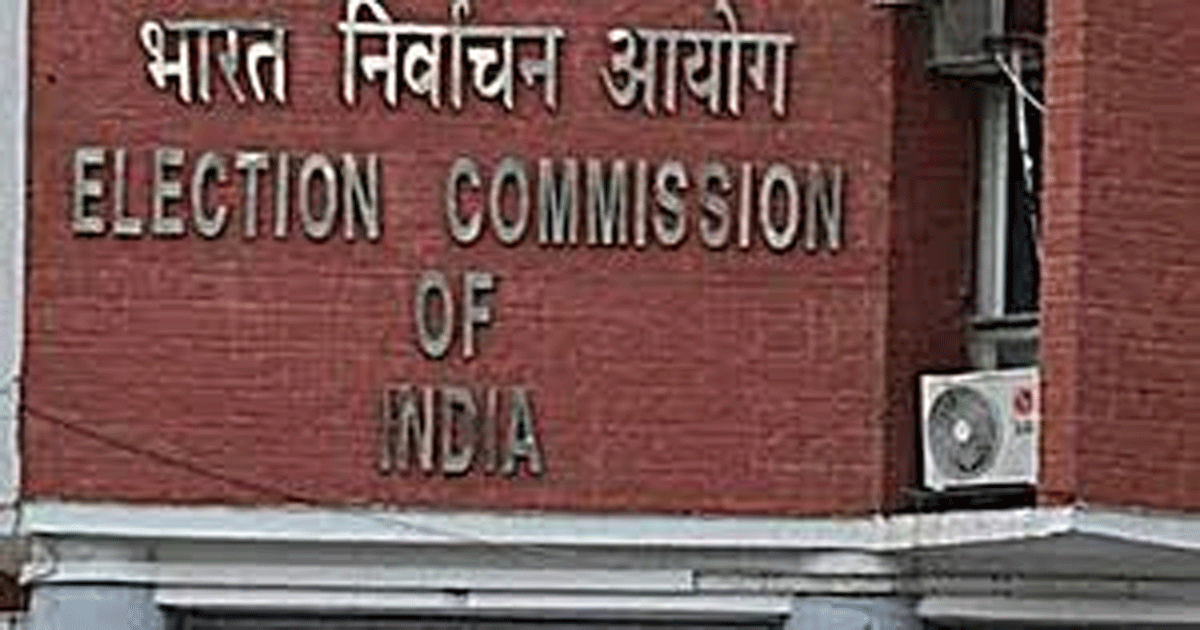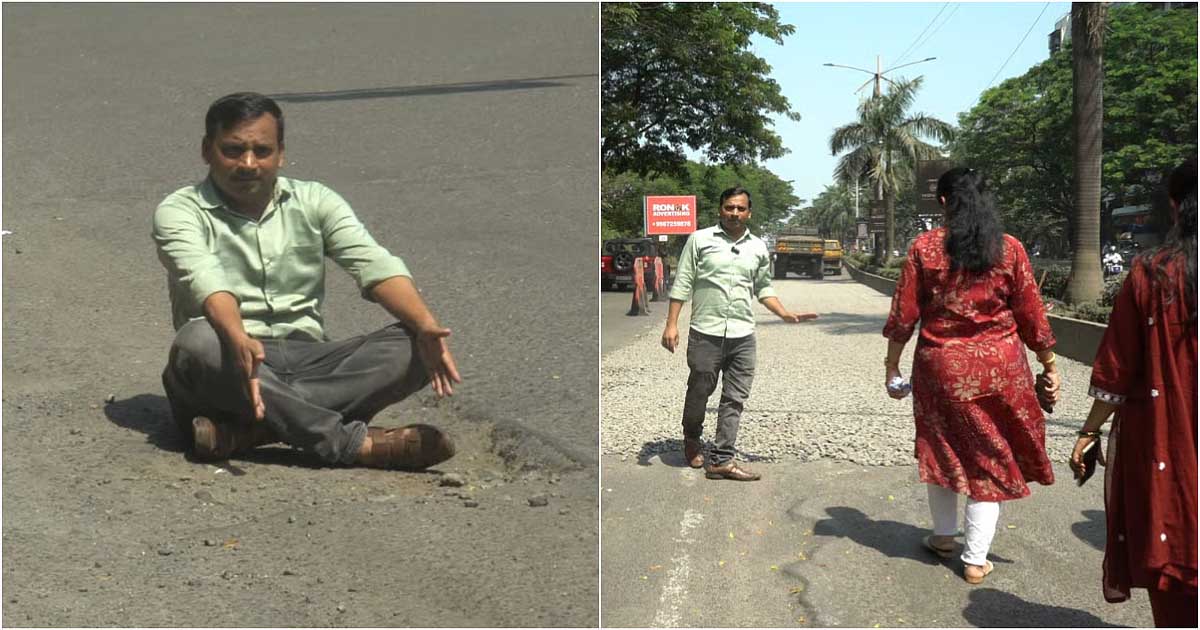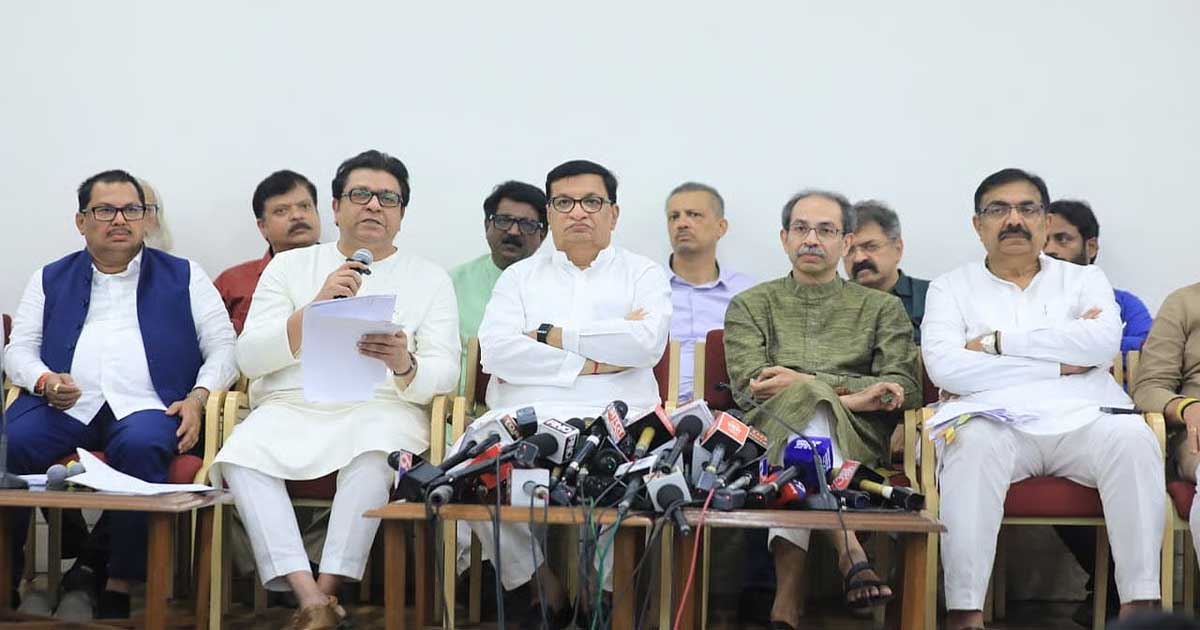National News
Will the changed rules of the Election Commission affect transparency? Understand every point

New Delhi: On the recommendation of the Election Commission, the rules have been clarified regarding the electronic records sought by the Law Ministry in the form of documents. The amended rules say that common people will not be able to take the footage of CCTV cameras installed in polling booths and webcasting. The opposition, including the Congress, is strongly opposing these amendments.
Amidst the commotion in the matter, spoke to the Election Commission. An attempt was made to find out whether the new amended rules will have any effect on the transparency of elections? Can there be any possibility of malpractice due to this? Or any other kind of manipulation? In this entire matter, a senior official of the Election Commission clarified about the amended rules.
Question: Congress has strongly opposed the amended rules and has questioned the transparency of the amendment.
Answer: Election Commission official says that this is completely baseless. There will be no reduction in transparency in the new amended rules. We are not hiding anything from anyone nor are we trying to hide anything, through amendment, Rule 93 (2) (A) of the old rule Conduct of Election Rule, 1961 has been amended to make it clear and unambiguous that there is no mention of CCTV cameras and webcasting footage in seeking records.
For those who ask for this record, it should not be construed as giving the footage of CCTV cameras and webcasting installed inside the polling booths. The new amended rules make it clear that these electronic records will not be given to the general public. This includes footage from CCTV cameras, webcasting and videography.
Question: Where did the case start?
Answer: It started with the case of Advocate Mehmood Pracha, in which on his petition, the Punjab and Haryana High Court on December 9 ordered the Election Commission to give a copy of the videography, CCTV footage and documents related to votes of a polling booth during the Haryana Assembly elections to Advocate Pracha. Only after this, on the recommendation of the Election Commission, the Law Ministry made these changes in the rules. Officials say that in the old rules, electronic data was also being sought under 17 (C) by citing Rule 93 (2) (A). There is no clear mention of this in the old rules, because at that time there was no provision for CCTV cameras, webcasting and videography at polling stations.
Question: So will the candidate also not be able to get CCTV footage?
Answer: This is not so, if the candidate wants, he will still be able to get electronic records like CCTV cameras through the court as before. This restriction will be only on common people. But here it would be right to clarify that the candidate will also be able to get electronic data of only that assembly or Lok Sabha constituency from where he has contested the election. It is not that he will be able to get CCTV records of any electoral area. In this too, this electronic record will be available only to the candidate, not to his political party.
Question: What is the problem in providing electronic records?
Answer: The Commission official says that there are major problems on two fronts. First, the safety of voters and second, its misuse by mischievous elements through AI. The Commission said that if such CCTV footage records in Jammu and Kashmir, Manipur, Chhattisgarh and many other states including Naxal-affected states fall into wrong hands, it can pose a threat to the safety of voters. Secondly, it can be misused through AI. Especially during elections.
People can misuse this on social media by creating polling booths of different states through AI on the day of voting and can make fake news viral by giving wrong messages to voters as per their wish. If this is stopped, the voting will be over and the wrong people can succeed in their nefarious intentions. Electronic data can also be sold outside the country.
National News
Navi Mumbai: Kharghar Residents Halt PCMC Roadwork, Demand Permanent Fix To Pothole Woes

Navi Mumbai: Residents of Kharghar, led by Kharghar Citizen Forum President Leena Garad, on Tuesday halted ongoing road resurfacing work near JJ Rasoi Hotel on the Utsav Chowk–Tata Hospital stretch, accusing the Panvel City Municipal Corporation (PCMC) of wasting public money on poor-quality, repetitive patchwork instead of providing lasting road solutions.
The protest came after newly resurfaced roads once again developed potholes within months of completion. “Every year, the same twenty to twenty-two spots in Kharghar develop potholes, and every year only patchwork is done. This cycle has continued for nearly eight years despite repeated complaints,” said Garad.
She added that in 2022–23, the forum had written to the civic body highlighting the recurring issue, and in 2024, they even conducted a micro-survey and submitted video proof demanding a permanent fix.
However, she alleged that instead of addressing the problem, the civic body launched roadwork projects worth Rs 200–300 crore after the Assembly elections, turning them into a “drama of pothole filling” meant for publicity rather than real improvement.
Garad further alleged that even well-constructed CIDCO roads, which earlier had no damage, were unnecessarily resurfaced through four contractors, resulting in fresh potholes.
“Roads that were smooth and strong under CIDCO have become pothole-ridden due to poor-quality, profit-driven work. Kharghar’s roads have turned into a gold mine for some contractors and officials,” she said.
After the citizens stopped the ongoing work, municipal officials arrived at the site and assured that no patchwork would be done and the entire road would be resurfaced properly. However, Garad questioned whether the civic body would act against companies allegedly linked to relatives of ruling party MLAs.
Calling it a case of “patchwork politics,” Garad demanded an independent expert audit of all Kharghar roads, legal action against responsible contractors and officials, and transparency in tender processes. She also urged the civic body to stop the annual farce of superficial patchwork and use modern, permanent repair technology.
“We are citizens, not subjects in a pothole empire. Our tax money should build durable roads, not fund corruption and repeated repairs,” Garad who was also a former corporator, asserted, warning that residents would continue to hold the administration accountable until lasting solutions are implemented.
Crime
Punjab: Janata Party chief moves High Court for protection from arrest

Chandigarh, Oct 15: A day after a confrontation between Chandigarh Police and Punjab Police over the custody, Janata Party president Navneet Chaturvedi, who allegedly forged the signature of legislators on nomination papers for the lone Rajya Sabha seat, on Wednesday moved the Punjab and Haryana High Court, seeking protection from arrest in the criminal case registered against him.
In the petition, Chaturvedi sought protection from arrest for 10 days and directions to the Punjab Police to produce the first information report (FIR) registered against him before the court. He also alleged attempts to abduct him by the Punjab Police on Tuesday.
Punjab Police have also moved a petition in the high court seeking his custody. After the FIR was registered in Ropar, a Punjab Police team went to Chandigarh to arrest him, but the Chandigarh Police took him into their custody.
Punjab Police on Monday reportedly registered multiple FIRs after several Aam Aadmi Party MLAs alleged that their signatures were forged on nomination papers submitted by Chaturvedi, who claims to be the national president of the Janata Party for the Rajya Sabha bypoll.
Advocate General Maninderjit Singh Bedi and Additional Advocate General Chanchal Singla sought transfer of custody of the accused to the Punjab Police, and initiation of contempt and departmental action against the officials responsible for defiance of court orders.
The Punjab Police have initiated legal action following receipt of complaints from sitting Members of the Punjab Vidhan Sabha (MLAs) regarding the alleged forgery of their signatures on nomination papers submitted by Chaturvedi.
A spokesperson for Punjab Police on Monday said the complainant MLAs have stated that they received messages and social media posts indicating that their names had been mentioned as proposers in the nomination papers filed by Chaturvedi before the Secretary of the Vidhan Sabha. Chaturvedi has filed two nominations, one on October 6 and another on October 13.
In their complaint, MLAs stated that it was found that a handwritten list of proposers, purportedly bearing the signatures of these MLAs, had been attached to the nomination papers, and the same was being circulated on digital platforms.
The MLAs have categorically denied having signed or supported the said nomination, and have alleged that their names and signatures were forged and fraudulently used without consent.
The forged documents, submitted before a constitutional authority, constitute a serious offence involving forgery, cheating, and criminal conspiracy. Based on these complaints, FIRs have been registered at different police stations in the constituencies of the complainant MLAs against said Chaturvedi.
National News
MVA Leaders, Raj Thackeray Meet Maharashtra CEO Over Voter List Issues

Mumbai: Maha Vikas Aghadi (MVA) leaders, along with MNS chief Raj Thackeray, visited the Maharashtra Election Commission office in Mumbai on Wednesday for a meeting with the Chief Election Officer (CEO).
Shiv Sena UBT chief Uddhav Thackeray, UBT leader Aaditya Thackeray and Congress leader Vijay Wadettiwar were also present in the election meeting.
Speaking to reporters, Uddhav Thackeray stated that they have demanded that the poll panel rectify the voter list and conduct elections after rectification.
The Shiv Sena (UBT) chief said, “Before the assembly elections of 2024, MVA had written a letter to the EC that the BJP is adding people to the voter list because it wanted to bring to your notice. We had clearly stated that until these flaws are rectified, elections should not be conducted. Also, another important point raised is that those till 31st July who have turned 18 years will only be allowed to vote. The cutoff of July 31st is unacceptable.” “Our first focus is to rectify the voter list and then prevent vote theft… We have an objection to EVM. Now, they don’t want to use VVPAT. Is it because they want to destroy the proofs? It is against democracy. When all party delegations met the Election Commission, we also called the BJP leaders, but they did not attend the meeting…” he added.
Meanwhile, in a post on X, Congress leader Vijay Wadettiwar said that they met the Election Commission officials to discuss the need to ensure that the upcoming local body elections in the state are completely transparent, fair and uphold democratic values.
The post reads, “A multi-party delegation met with the Chief Election Officer and the State Election Commissioner today to discuss ensuring that the upcoming local self-government institution elections in the state are conducted in a completely transparent, impartial manner, upholding democratic values. The foundation of democracy is trust and transparency; to sustain this trust, it is essential that every election process is flawless. This demand was made on this occasion.”
-

 Crime3 years ago
Crime3 years agoClass 10 student jumps to death in Jaipur
-

 Maharashtra1 year ago
Maharashtra1 year agoMumbai Local Train Update: Central Railway’s New Timetable Comes Into Effect; Check Full List Of Revised Timings & Stations
-

 Maharashtra1 year ago
Maharashtra1 year agoMumbai To Go Toll-Free Tonight! Maharashtra Govt Announces Complete Toll Waiver For Light Motor Vehicles At All 5 Entry Points Of City
-

 Maharashtra1 year ago
Maharashtra1 year agoFalse photo of Imtiaz Jaleel’s rally, exposing the fooling conspiracy
-

 National News1 year ago
National News1 year agoMinistry of Railways rolls out Special Drive 4.0 with focus on digitisation, cleanliness, inclusiveness and grievance redressal
-

 Maharashtra11 months ago
Maharashtra11 months agoMaharashtra Elections 2024: Mumbai Metro & BEST Services Extended Till Midnight On Voting Day
-

 National News1 year ago
National News1 year agoJ&K: 4 Jawans Killed, 28 Injured After Bus Carrying BSF Personnel For Poll Duty Falls Into Gorge In Budgam; Terrifying Visuals Surface
-

 Crime1 year ago
Crime1 year agoBaba Siddique Murder: Mumbai Police Unable To Get Lawrence Bishnoi Custody Due To Home Ministry Order, Says Report












